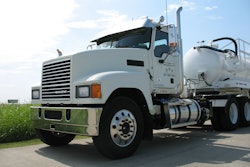NGVAmerica celebrates the passage of legislation by the House of Representatives and the Senate that corrects a longstanding inequity in the way liquefied natural gas (LNG) is taxed and will further expand the use of clean-burning domestic natural gas as a transportation fuel. The key provision was passed as part of a three month extension (H.R. 3236) of federal funding for the national highway program.
Currently, fleets operating LNG-powered trucks are effectively taxed for their fuel at a rate 70 higher than that of diesel fuel. This is an unfair penalty on trucking fleets that use domestically produced LNG. The provision modifies the highway excise tax on LNG to be based on energy content, rather than volume, and thus brings the tax on LNG into parity with that of diesel.
Starting January 1, 2016, LNG will be taxed based on a diesel gallon equivalent (DGE) unit.
“Passage of this legislation is great news for trucking fleets who are looking to clean-burning LNG to power their transportation needs,” says Matthew Godlewski, NGVAmerica President. “This common-sense change will mean even greater savings on their fuel costs, and it provides a powerful new economic incentive for those fleets considering the switch to this already low-priced, domestic fuel.”
This fix reduces the excise tax on LNG from approximately 41.3 cents per DGE to 24.3 cents per DGE. To illustrate the significance of the change, consider that a natural gas truck traveling 100,000 miles per year at 5 miles per DGE consumes 20,000 DGE per year. Prior to the passage of the new law, the LNG truck would have a highway fuel tax bill of $8,262. With this change, the LNG truck will now pay $4,860 a year in highway fuel taxes, a savings of $3,402 per year.
NGVAmerica members commend the Congress for its actions and appreciates the leadership of Sens. Michael Bennet (D-CO) and Richard Burr (R-NC), as well as Reps. Mac Thornberry (R-TX) and Todd Young (R-IN) for seeing this key provision through.



















